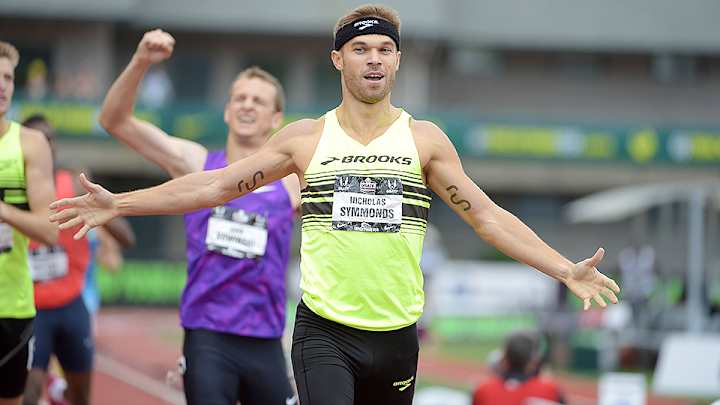Protest planned at Olympic track and field trials over sponsorship rights

Nick Symmonds, a two-time U.S. Olympian, plans to lead a protest with other runners at the U.S. Olympic Trials in Eugene, Ore. to voice concern over fair compensation of Olympic athletes by the International Olympic Committee (IOC).
The protest mainly targets the IOC’s Rule 40, which prohibits Olympic athletes from using their names or likenesses for any advertising campaigns during a nearly month-long period around the Summer Games. Any athletes that violate the rule could face sanctions that include disqualification and possibly the stripping of medals. In the latest revision of their rules, IOC will allow “generic” or “non-Olympic advertising” during the games.
Rule 40 was initially established to protect official Olympic sponsors, who spend millions of dollars for exclusive marketing rights. Several athletes protested the rule at the 2012 Olympics in London by using #WeDemandChange2012.
• 40 years after gold, Caitlyn Jenner is comfortable in her own skin
Symmonds’s movement, which he has branded as #OwnYourSkin, has called for athletes to wear black tape on their shoulder in solidarity. Symmonds and other volunteers will also offer tape and stickers to the estimated 24,000 fans expected to be in attendance who want to show their support.
“Here we are four years later and not much has changed. USATF, USOC and the IOC are still stealing the money available and paying the athletes next to nothing for the trials and absolutely nothing from the games,” Symmonds says. “I have never made a single dollar from the Olympic Games and whether you’re Michael Phelps or Usain Bolt or a random athlete that you’ve never heard of, they all make the exact same—zero dollars.”
The USOC responded that medalists are paid $25,000 for gold, $15,000 for silver and $10,000 for bronze at the Olympics. Symmonds has never medaled at the Games.
SI.com has reached out to USATF for a comment but has not heard back at the time of publication.
In track and field, athletes primarily have contracts for their shoes and apparel as well as other minor sponsors (sports drinks, snack bars, etc).
”We get bonuses from our contracts and we should be allowed to support our sponsors in that time,” Symmonds says. “If I make the team and win a medal, the only money I really see is from Brooks [Running] so why am I not allowed to mention Brooks during the games?”
• Q&A with Sanya Richards-Ross: Talking trials, Beyonce, Kobe and more
Last month, a U.S. District Court judge in Oregon dismissed an antitrust lawsuit by Nick Symmonds’s company Run Gum against USA Track & Field and the U.S. Olympic Committee. Symmonds wanted to see a change in the athletes’ rights to wear their sponsors’ logos at meets like the Olympic Trials and the Olympics. The current rules only allow for apparel and equipment companies that have been approved. The judge in the case concluded that restricting logos is “a ban which is necessary to finance Team USA.”
Symmonds is entered to run in the men’s 800 meters with the first round scheduled for Friday. He has been nursing an ankle injury this outdoor season and says he will make a decision on Thursday on whether or not to run at the trials.
